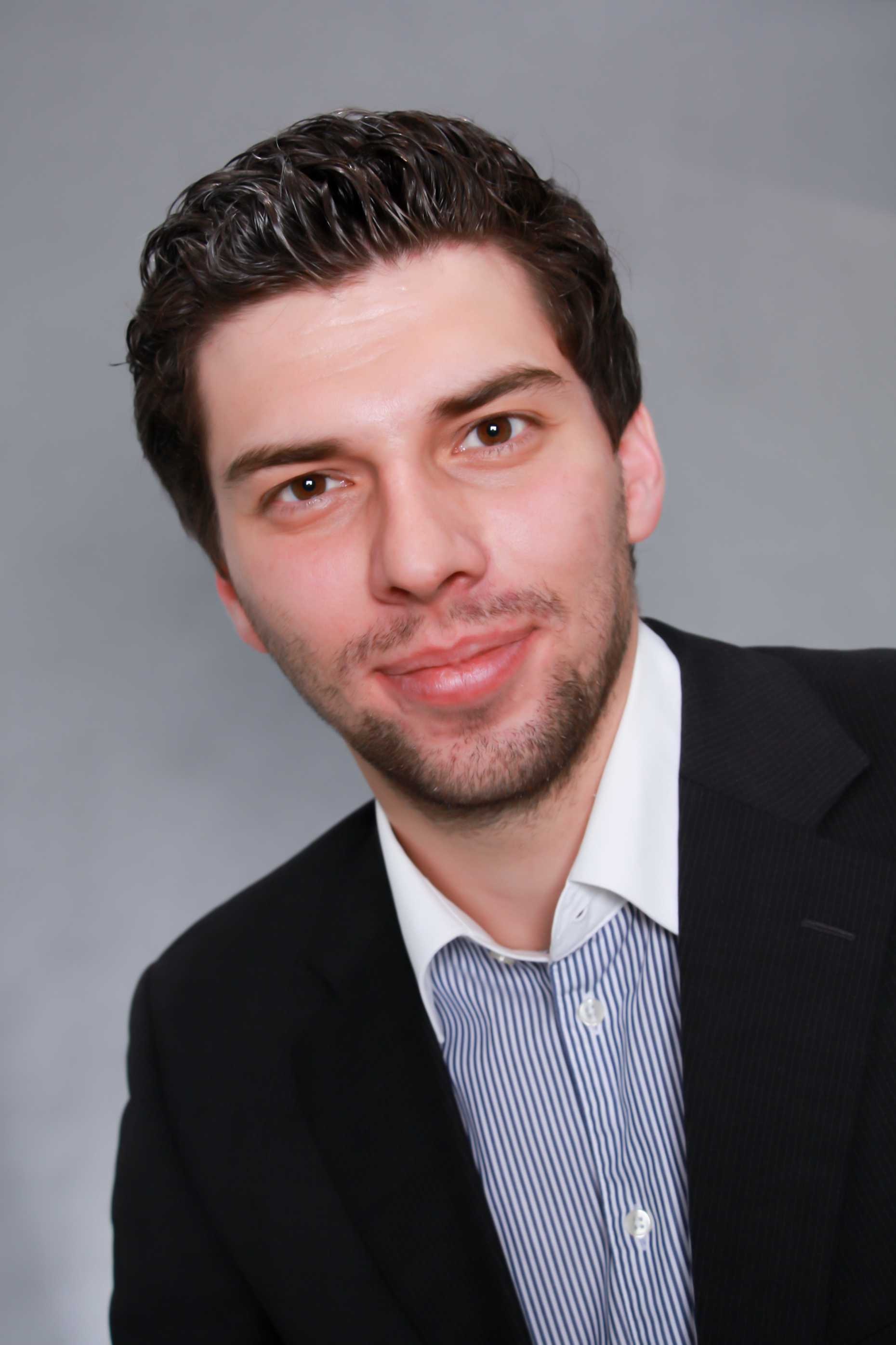Dr. Michael Sokolov
Résumé
Michael Sokolov was born in Moscow, Russia. He obtained his high-school degree (Abitur) in Viernheim in Germany in 2008. In the same year he started his studies in Chemical Engineering at the Technical University of Munich (TUM). During his B.Sc. he participated in research projects at the Technical University of Denmark (DTU) in Copenhagen and at ETH Zurich for his Bachelor thesis. In the final year of his M.Sc. at TUM Michael Sokolov carried out a research project at Harvard University in Cambridge, USA in the field of applied bioengineering. During his studies he gained work experience in internships with Roche Diagnostics, KPMG Advisory and Linde Engineering and was a scholar of German National Academic Foundation (Studienstiftung des des deutschen Volkes) and Bayerische Eliteakademie.
He then returned to the group of Prof. Morbidelli to start a project entitled ‘Data- and knowledge-driven tools to accelerate biopharmaceutical process development’ in close collaboration with the biopharmaceutical industry. His doctoral work served as a basis to co-found the ETH spin-off company external pageDataHowcall_made in 2017, which provides model-based digital solutions to the process industry.
Project description
In 2013, therapeutic proteins featured a sales volume as high as 75 bln US$ with a steady growth in the following years. The corresponding bioprocesses are very complex and not fully understood, so that a purely mechanistic description of the relationship of the process to its product is not possible. In order to ensure robustness and consistency of the product quality, which is of great importance for the safety and efficacy of the drug, a large number of experiments have to be carried out throughout process development. This yields to very large data sets being produced and an increasing amount of process expertise and knowledge. The objective of Michael’s PhD work is to develop data- and knowledge-driven tools to significantly improve the efficiency in bioprocess development. Those tools shall cover a large range of the drug’s lifecycle, from screening, through process monitoring and validation to scale-up. Generally applicable, multivariate models tailored to the needs of each development step shall provide a solid basis for decision taking to the process development team while hybrid process models shall take advantage of the existing process knowledge to provide a mechanistic backbone to the process models, so to further decrease the required experimental effort.
Project highlights
- Multivariate models for accurate prediction of monoclonal antibody (mAb) titer and quality
- High-throughput screening and optimization framework for biosimilar mAb process development
- Raman spectroscopy-based online monitoring of process and mAb product quality attributes
- Hybrid process models for cell cultures
Publications
- external pageFingerprint detection and process prediction by multivariate analysis of fed-batch monoclonal antibody cell culture datacall_made. Sokolov M., Soos M., Leardi R., Neunstoecklin B., Solacroup T., Stettler M., Broly H., Morbidelli M., Butté A., Biotechnol. Prog. 31:1623-1632, 2015; doi: 10.1002/btpr.2174
- external pageRobust parameter selection in early cell culture process development for the production of a biosimilar monoclonal antibodycall_made. Sokolov M., Ritscher J., MacKinnon N., Bielser J.-M., Brühlmann D., Rothenhäusler D., Thanei G., Soos, M,, Stettler M., Souquet J., Broly H., Morbidelli M., Butté A., Biotechnol. Prog., 2016; doi: 10.1002/btpr.2374
- external pageParallel experimental design and multivariate analysis provides efficient screening of cell culture media supplements to improve biosimilar product qualitycall_made. Brühlmann, D., Sokolov, M., Butté, A., Sauer, M., Hemberger, J., Souquet, J., Broly, H. and Jordan, M., Biotechnol. Bioeng, (2017). doi: 10.1002/bit.26269
- external pageEnhanced process understanding and multivariate prediction of the relationship between cell culture process and monoclonal antibody qualitycall_made. Sokolov, M., Ritscher, J., MacKinnon, N., Souquet, J., Broly, H., Morbidelli, M., & Butté, A., Biotechnol. Prog., (2017). doi: 10.1002/btpr.2502
- external pageSequential multivariate cell culture modeling at multiple scales supports systematic shaping of a monoclonal antibody towards a quality targetcall_made. Sokolov, M., Morbidelli, M., Butté, A., Souquet, J., & Broly, H., Biotechnology journal (2017). doi: 10.1002/biot.201700461

